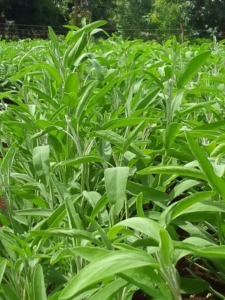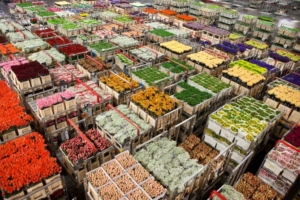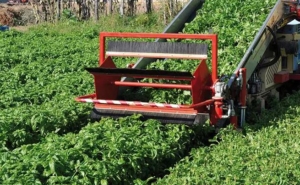Sage Suppliers Belgium: 9 Best Exclusive Tips
The category of sage suppliers Belgium includes the list of the sage herb suppliers across Belgium in the form of this guideline that looks at the sources of this herb in Belgium. This guide traverses Belgium to cover all key tips for understanding the supply of sage across the nation. Read on to understand the flow of sage in Belgium.


1. Sage Suppliers in Brussels
Major businesses in the sage suppliers Belgium category operate in the Brussels-Capital Region. The region serves as a central hub for the import and distribution of produce in Belgium. It is home to major logistical and commercial infrastructures, including the Brussels Market (Brussels Wholesale Market), which is a key player in the distribution network of sage suppliers Belgium. This central location allows for efficient redistribution of produce to other regions and neighboring countries. The presence of major transport links, including road, rail, and air connections, further enhances Brussels’ role as a pivotal point in Belgium’s import network. The concentration of businesses here facilitates streamlined operations and easy access to international markets.
2. Flanders: Port of Antwerp’s Influence on Sage Suppliers Belgium
In the Flanders region, the Port of Antwerp plays a significant role in the importation of produce. As one of Europe’s largest and busiest ports, Antwerp is crucial for Belgium’s import trade. The port’s extensive facilities and sophisticated logistics infrastructure enable the efficient handling and processing of a wide range of produce from around the world. This has led to a strong presence of businesses specializing as sage suppliers Belgium. The port’s integration with inland transport networks ensures that produce can be quickly and efficiently distributed across Belgium and Europe.

3. Wallonia: Regional Markets and Local Distributors are Key Sage Suppliers Belgium
Wallonia, with its distinct economic and logistical characteristics, relies heavily on regional markets and local sage suppliers for the import of sage. The region features several key wholesale markets, such as the Liège Market, which serves as a central point for the distribution of imported produce to local businesses and consumers. Local sage suppliers Belgium play a crucial role in managing the supply chain from the port to the end market. This decentralized approach allows for more personalized service and supports the region’s diverse agricultural and food industry landscape.
4. Customs and Regulatory Variations impacting Sage Suppliers Belgium
Belgium’s federal structure means that there are variations in customs and regulatory practices across its regions. While federal regulations provide a general framework, regional authorities have specific rules and procedures for the importation of produce. For instance, Flanders and Wallonia may have different local requirements concerning food safety, labeling, and agricultural standards. This can affect how businesses known as sage suppliers Belgium operate within each region, requiring them to stay updated on both federal and regional regulations to ensure compliance and smooth operation.
5. Logistics and Factors in the Economy

The logistical infrastructure for importing produce differs between regions. Flanders benefits from advanced port facilities and well-developed road and rail networks, facilitating efficient transportation of goods. Brussels, being centrally located, leverages its transport connections to serve as a redistribution center for sage suppliers Belgium. Wallonia, while benefiting from regional markets, faces logistical challenges due to its more decentralized infrastructure. The varying quality and capacity of logistical infrastructure across regions impact the efficiency of produce distribution and the cost of operations.
The economic impact of the imported produce sector varies across Belgium’s regions. In Flanders, the presence of major ports and distribution centers contributes significantly to regional employment and economic activity. The Port of Antwerp, in particular, creates numerous jobs in logistics, warehousing, and transport. In contrast, Brussels’ role as a commercial center supports a different economic structure, focusing on trade and administrative functions. Wallonia’s emphasis on local markets and distribution has a distinct economic impact, supporting smaller businesses in the sage suppliers Belgium category and regional agricultural activities.
6. Market Demand and Consumer Preferences
Consumer preferences and market demand for imported produce can vary significantly across Belgium’s regions. In Flanders, the diverse and international population drives high demand for a variety of exotic fruits and vegetables. Brussels, with its cosmopolitan nature, also sees a broad range of imported produce catering to diverse tastes. In Wallonia, consumer preferences may lean more towards locally sourced and traditional produce, influencing the types of imported goods that are in demand. This regional variation affects how businesses that we classify as “sage suppliers Belgium” tailor their import strategies and product offerings.
7. Role of Trade Associations and Cooperatives and the EU in Sage Supply
Trade associations and cooperatives play a crucial role in the importation of produce in Belgium. In Flanders, organizations such as the Flemish Association of Fruit and Vegetable Wholesale Traders (VBT) support businesses through advocacy, standards development, and networking. In Wallonia, regional cooperatives and trade associations help manage the import process and support local producers. These organizations provide a platform for businesses to collaborate, share best practices, and address common challenges in the import sector, reflecting the regional focus and needs.
Belgium’s regional sage import business structure is also influenced by European Union policies, which apply uniformly across the country. However, the implementation and impact of these policies can vary regionally, thus requiring all businesses in the sage suppliers Belgium cluster to observe local practices. For example, EU regulations on food safety, tariffs, and trade agreements affect how produce is imported and handled. Each region adapts these policies based on local conditions and industry practices. This creates a dynamic environment where regional businesses must navigate both EU-wide regulations and local interpretations to ensure compliance and optimize their operations.
8. Sustainability and Environmental Considerations
Sustainability and environmental considerations are becoming increasingly important in the importation of produce across Belgium’s regions. In Flanders, the focus is often on integrating sustainable practices into logistics and distribution, such as reducing carbon emissions and improving energy efficiency. Brussels emphasizes sustainable urban logistics to minimize the environmental impact of distribution activities. Wallonia’s regional markets are increasingly adopting sustainable practices, including local sourcing and reducing waste. Each region’s approach to sustainability reflects its unique priorities and challenges, influencing how produce is imported and managed by sage suppliers Belgium.
9. Mulberry Growers is a Company in the Sage Suppliers Belgium Category
We export and supply sage to all regions of Belgium, and we welcome you to buy from our vast supplies of high-quality sage in Belgium.
Mulberry Growers supplies sage in Belgium and also supplies this herb in bulk to other regions of Europe. We are glad to partner with any like-minded traders to sell our sage in Belgium:
Get your deal with us today here:
- Website: www.mulberrygrowers.com
- Our Email: commercial@mulberrygrowers.com
- Call/WhatsApp: +254 716 150 111 OR +254 748 897 749